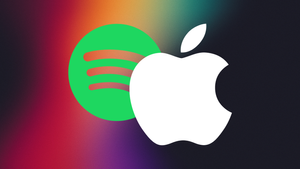Apple this week urged the court hearing its ongoing legal battle with Fortnite maker Epic Games to reject attempted interventions by other app developers, including Spotify.
The developers all submitted amicus briefs, where third parties provide information relating to cases in which they have interest but are not directly involved. However, says Apple, those filings simply “parrot” arguments made by Epic itself, while also seeking to “relitigate” grievances where the court previously ruled in Apple’s favour.
“These proposed amici are - or include - multi-billion-dollar companies that do not purport to speak for either consumers or the vast majority of iOS developers”, Apple said in its own legal filing earlier this week. “The proposed amicus briefs merely parrot the arguments made by Epic Games in its motion to enforce the injunction”.
Epic sued Apple over its App Store rules relating to in-app payments. Like Spotify, Epic objects to a rule that forces it to take in-app payments on iOS devices via Apple’s own commission charging transactions system, and another that prohibits the sign-posting within an app of alternative payment options elsewhere on the internet. Those rules, Epic, Spotify and other app developers have repeatedly argued, are anti-competitive.
However, in court Epic failed to convince a judge that Apple’s rules violate US competition law. But the rule against sign-posting other payment options - often called the anti-steering provision - was deemed to be in violation of California’s unfair competition law.
As a result, the court issued an injunction ordering a change to that provision. Therefore Apple is now allowing the sign-posting of other payment options in the US, but on the condition that it can still claim a commission on any transaction that began within an iOS app.
Epic argues that the way Apple is complying with the injunction means app developers are no better off and, as a result, its approach is a “blatant violation” of the court’s order that will “nullify” what the judge sought to achieve.
To that end, last month it urged the court to hold Apple in contempt for violating the earlier injunction, and to then order the tech giant to allow the sign-posting of alternative payment options in a more Epic friendly way.
In its subsequent amicus brief supporting Epic, Spotify wrote that “Apple’s conduct shows that it has no intention of complying with this court’s directive”. Meta, Microsoft, X and Match Group all made a joint filing stating that, “the Apple plan comports with neither the letter nor the spirit of this court’s mandate”.
In its response to those filings this week, Apple said that “the principal complaint advanced by the proposed amici is that Apple continues to charge developers for certain transactions facilitated by the iOS platform”. But the court never said that Apple couldn’t charge developers in that way, just that it must allow alternative payment options to be signposted in iOS apps.
“Like Epic, the proposed amici are trying to relitigate that issue through the lens of the unfair competition law injunction”, Apple’s legal filing continued.
“At the same time, however, the proposed amici do not dispute that Apple - like all of them, and Epic itself - is entitled to charge platform participants for using its tools and technologies protected by intellectual property, access to the userbase, and many other benefits afforded developers”.
The app developers, like Epic, are also “asking the court to impose new restrictions on Apple so that they can use the many benefits Apple provides developers for free. This has nothing to do with the letter or spirit of the injunction. The self-serving and profit-seeking interests of the proposed amici diverge from the goal of the injunction”.
And, therefore, the attempts by Spotify et al to intervene in this latest stage of Apple’s dispute with Epic “should be denied”.

